When The Conjuring was released in 2013, it was an immediate hit with horror buffs. The film has led to a series of spin-offs following the supernatural tales of the Warrens, a famed married couple who performed paranormal investigations across the world, including at the Perron’s farmhouse in 1973. What happened there inspired The Conjuring, but now Andrea Perron and her family have chosen to tell their side of the chilling story in a new documentary on BLAZE.
The Real Conjuring: Our Story
The Real Conjuring: Our Story explores the story of the Perron family who, after moving into the Arnold Estate in the early 1970s, claimed to experience endless supernatural happenings in the house. When famed paranormal investigators Ed and Lorraine Warren attempted to help them, a member of the family was possessed by an evil presence, and almost didn’t live to tell the tale.
These events later inspired a film adaptation, The Conjuring. Many details of the film following reality, using the Warren’s case notes and Andrea Perron’s writing as a base – however, the film’s terrifying antagonist of Bathsheba, a murderous witch who terrorises the family, is a far cry from the Perron’s memory of the spirits they encountered. In reality, the story of Bathsheba and Arnold Estate is far more complex.
This special documentary will separate fact from fiction to uncover the true story of what happened to the Perron family at the Arnold Estate, exploring their stories of a childhood surrounded by spirits and delving into the real Bathsheba.
Don’t miss The Real Conjuring: Our Story’s premiere on BLAZE TV (Freesat channel 162) on Monday 29th August at 9pm as part of Paranormal Week.
Is The Conjuring based on a true story?
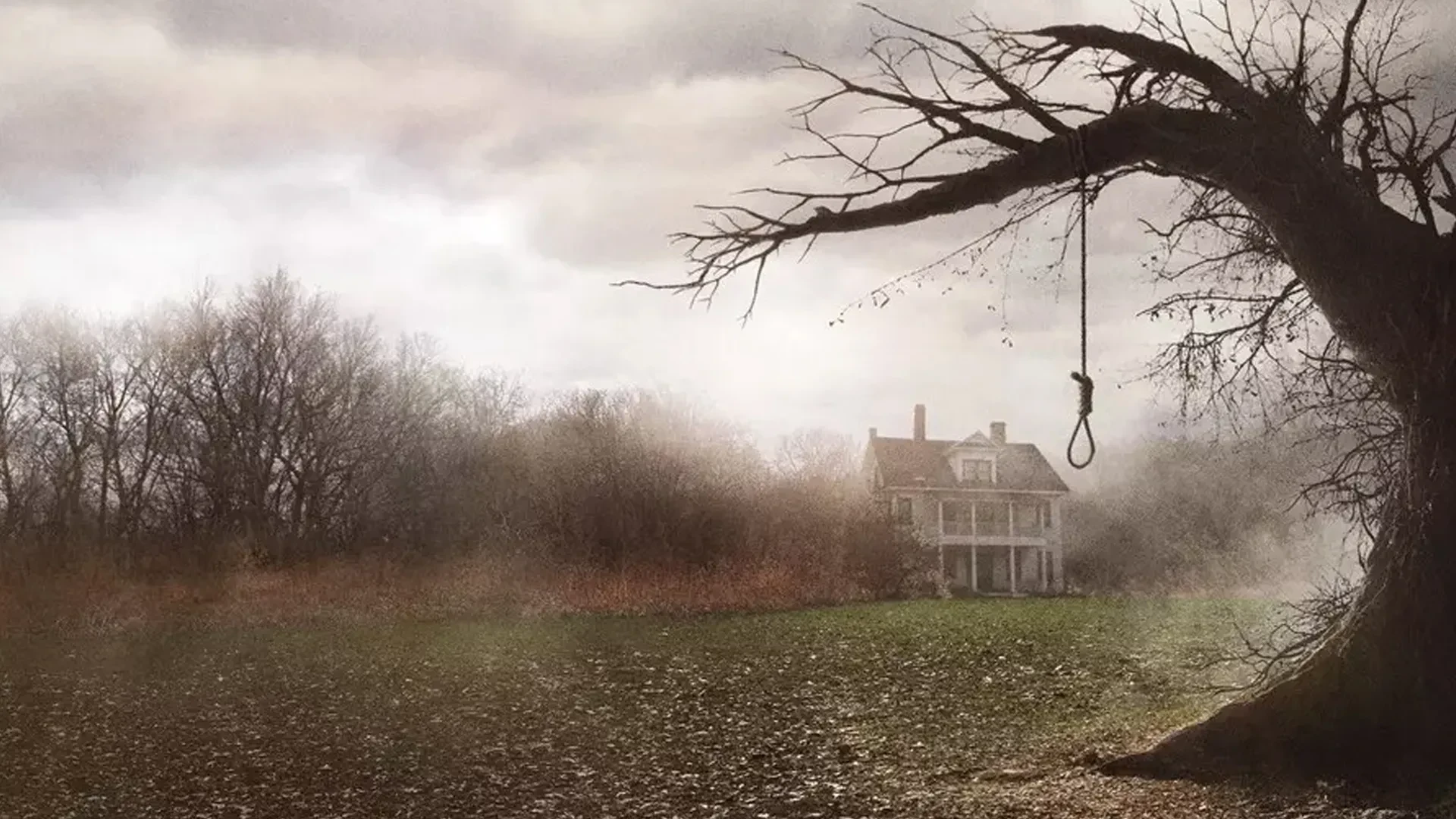
Above: Image of the Arnold Estate as depicted in The Conjuring (2013)
Although The Conjuring is indeed based on a true story, director James Wan used plenty of creative license to make the story more theatre-friendly.
We’re used to seeing the ‘based on a true story’ text at the start of so many horror films, but it’s easy to forget the real individuals behind the story. The Perron’s story is one worth telling, but a hard one to explore in a 112 minute film. That’s part of why Andrea Perron and the rest of her family have chosen to take part in The Real Conjuring: Our Story, to tell the unabridged and true story of what really happened back in 1970 when they found the old Arnold Estate in Harrisville, Rhode Island.
The secluded, Colonial-era farmhouse seemed like the perfect fit for Carolyn and Roger Perron and their five daughters. Although it was an old property, the thought of it being “haunted” didn’t occur to the happy couple, and to the children it must’ve been excited to have a new place to explore and play far away from the suburbs they were used to.
However, strange happenings in the house quickly transformed the home from a dreamhouse into something far darker and more unpredictable. From objects moving unexpectedly to horrible unexplained stenches, and apparitions of a terrifying woman with a broken neck, it was clear the old Arnold Estate was a hub of paranormal activity. Yet the family dealt with the events alone until 1973 when the Warrens showed up at their door...
The real Ed and Lorraine Warren
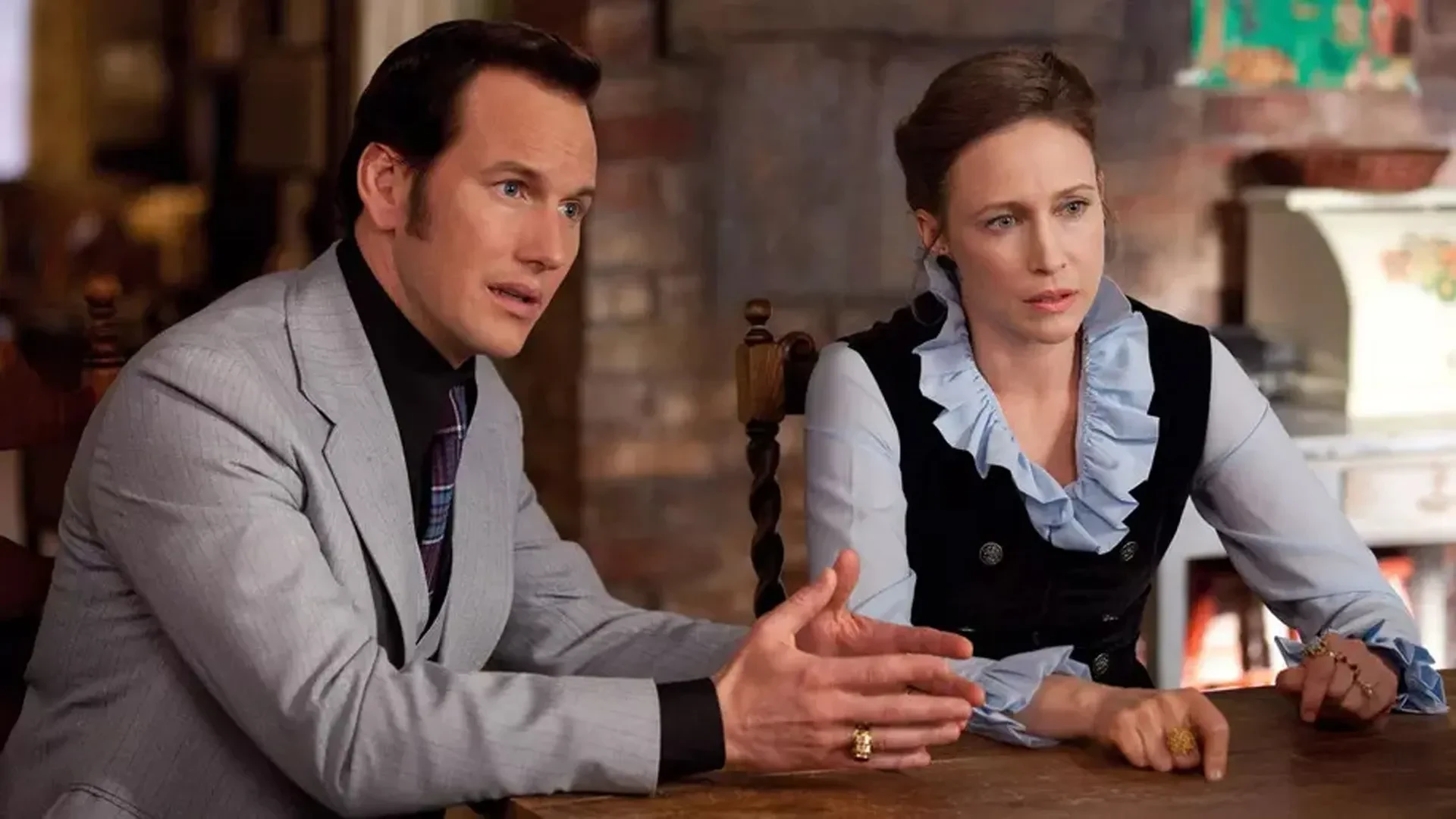
Above: Ed and Lorraine Warren as depicted in The Conjuring (2013)
Spookily enough, it was the night before Halloween in 1973 when famed paranormal investigators Ed and Lorraine Warren arrived at the Arnold Estate after hearing the stories of the haunted house. Lorraine, a well-known medium, immediately declared the source of the paranormal happenings as Bathsheba Sherman, a long-dead woman who had been accused of witchcraft and murdering a child. After some investigation, the Warrens conducted a séance which led to Carolyn Perron being possessed by a malevolent spirit. Carolyn levitated off the floor and spoke in an unknown language before being cast back down, the event almost killing her.
Yet, despite what sounds like a horrifying experience, the Perrons lived at the house for 10 years until 1980, seven full years after the ill-fated séance. Andrea even regularly returns to the farmhouse even now, which doesn’t seem like the behaviour of someone who is traumatised by what happened there, and believes that Bathsheba has been given a bad rap and is determined to speak on her behalf. Andrea Perron believes that while the film did its best, it failed to capture the complexities of the situation. Indeed, when Andrea describes her time in the old Arnold Estate, it is not one of pure terror, but “miraculous and wonderful, and inspirational and illuminating.”
That may sound surprising, but the true story of the events behind The Conjuring are far more nuanced than the film suggests...
Who is Andrea Perron?
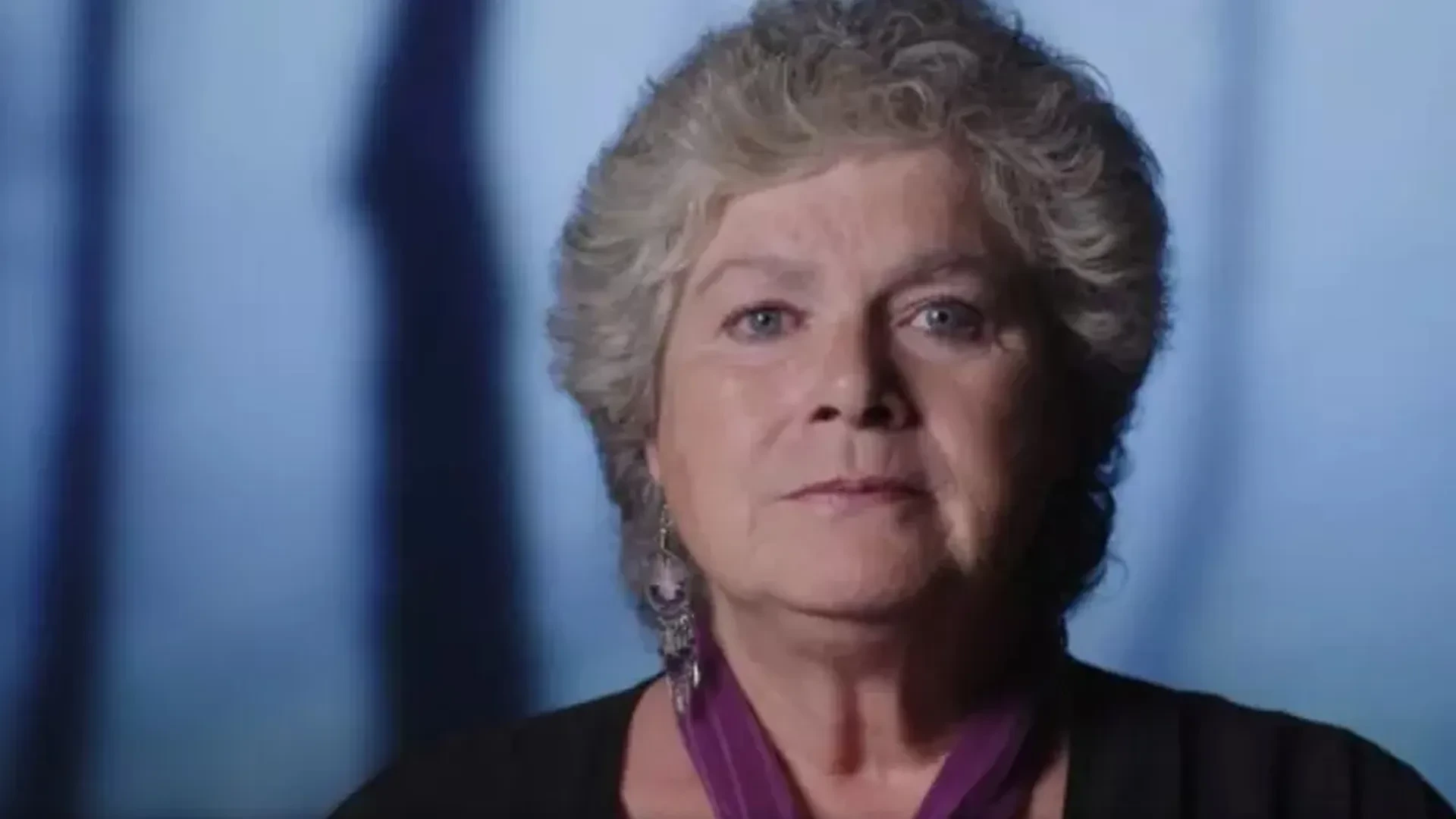
Andrea Perron was the oldest of the five Perron daughters, and was witness to both the horrors and the joys of her childhood home. Andrea has authored three books to try and fully recount what her family experience, including House of Darkness House of Light, a title suggested by her mother.
Describing the house as “a portal cleverly disguised as a farmhouse", here is what Andrea had to say on the events of her childhood and the new documentary:
Thanks Andrea for taking the time! Why not start by telling us your connection with The Conjuring?
The house was bought in 1970 and we lived there until June of 1980, and it had a profound impact on every single member of my family - and yet all of us responded to it differently.
It is the most amazing place I've ever been in my life, I can't imagine ever being separated from it in heart or mind, I go back as frequently as I can. But my mother will never step foot on that property again, she said so the day that she left with us in 1980. As we drove away she said, “I'm never coming back here.” Me, I can't get enough of it. I want to go back as often as possible. But I have a different relationship with the spirits in the house than my mother did. And so I completely understand her point of view.
It was an extremely enlightening way to grow up. My mother has no fear of death. Neither do I, because I know, without question, that there's something beyond our mortal existence - but I can't tell you exactly what it is all these years later, or how it is, or why it is - it just is. And you know, for me, that solidified my faith, to know that we go on in some way, shape, or form. And I just consider the farmhouse, well, it's a source of enlightenment - I often refer to it as a portal cleverly disguised as a farmhouse.
It took me seven years to write three books, House of Darkness House of Light, and my mother is the one that titled the books. When I asked her why she chose that, she said, because it was both - we had some of our best times together as a family in that place, and we also saw the other side of existence we saw - we were granted glimpses into the netherworld.
And what an incredibly informative thing! If you can get past the fright, of being exposed to something that you've never seen before, you've never experienced… I feel we fear the unknown, that is hard wired into the human psyche, but Madame Curie is the one that stated it best when she said, “Now is the time to learn more so that we may fear less.” It is that fear of death and fear of the unknown that traumatises people and keeps us up in the wee hours of the night, but my mom has no fear of death, I have no fear of death. I know that in some way, shape, or form we go on.
[…] There was something absolutely miraculous and wonderful, and inspirational and illuminating, about growing up in an environment where we lived, in shared space. It was an extraordinary way to grow up. And it changed me in fundamental ways. I can't even imagine what my life would be like had I grown up in a more normal environment. I feel blessed. To have to be touched by spirit is not a curse, it's a blessing. It's a rare glimpse into the realm from which we come and we'll all inevitably return. And so my suggestion to humanity is: Be not afraid, be curious.
So you wouldn’t describe it as a haunted house then?
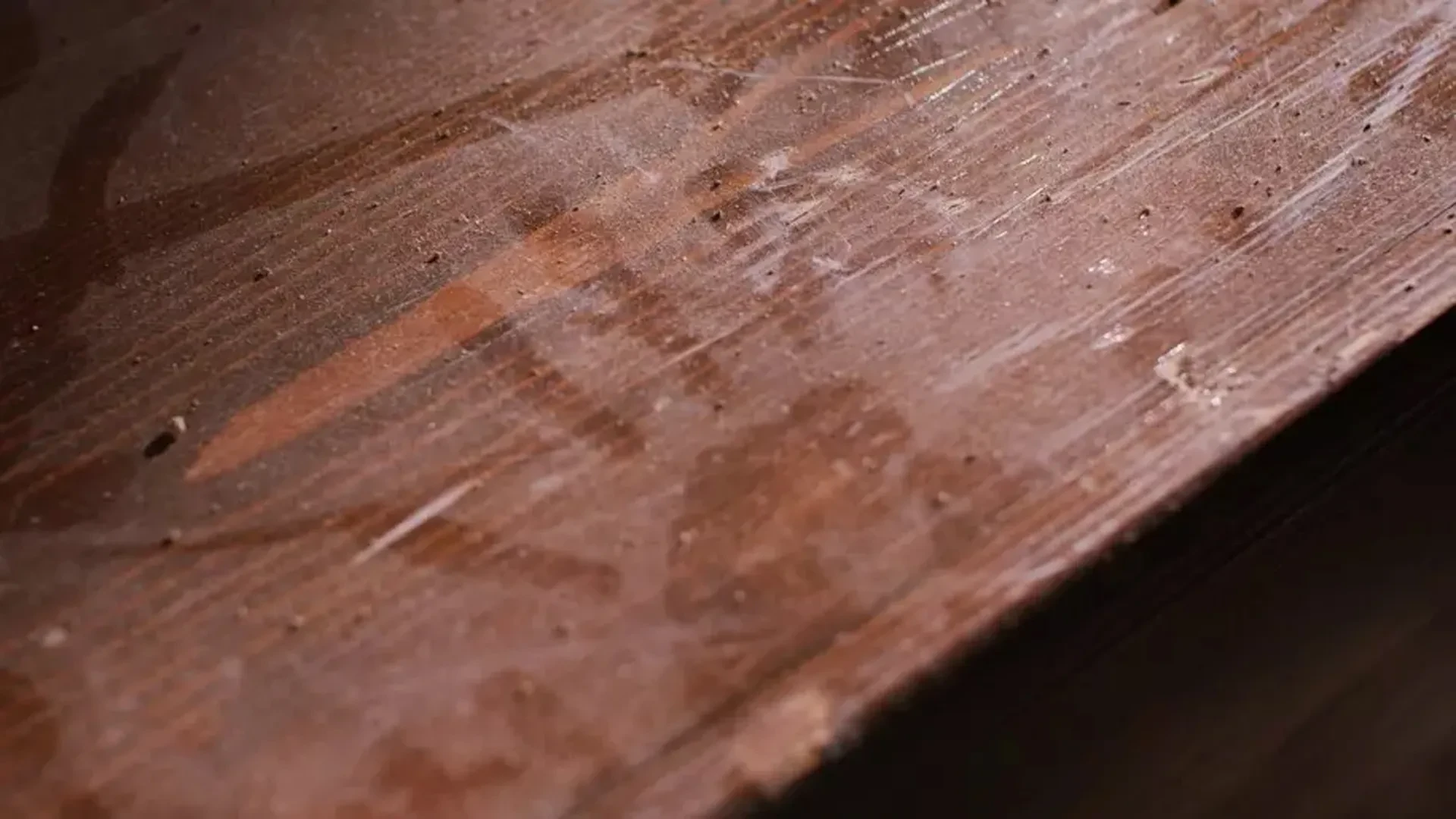
I don't like the word haunted, because I feel that it has a negative connotation. I like to think of it as a shared space. I think we don't have the vernacular right now, we don't have the language at our disposal to describe the kind of integration and detachment that exists between the living and the dead. So, I'm hoping that over time, our language and our ability to be able to descriptively discuss things like this evolves. Because I don't call them ghosts, I call them spirits, but really when it comes down to it, it's all semantics. Living among the dead, that's what we did. We dwelled among the dead. The dead dwelled with us, and they would make their presence known with such regularity that it got rather crowded in that house from time to time. But mostly, it was a glorious experience. And I think that that should be the takeaway for people, that not everything has to be doom and gloom and being terrified out of your mind - the more we understand, the less we fear.
What about the spirits that dwelled with you in the house? What was your experience with them?
[We] live in duality - there is darkness and light, there is good and evil. I have personally witnessed pure unadulterated evil - my mother was attacked and almost killed in that house by something that was invited in by a medium, who was, as far as I'm concerned, committing spiritual malpractice. You don't kick open wide the doors to the nether world and invite everything in to determine who the culprit or the spirit in the house is, because when you do that you're letting in energy - cosmic energy, universal energy - whatever.
I am telling you that whatever attacked my mother was not of this earth. It spoke a language that does not exist. It lifted her in her chair and threw her 20 feet from the middle of our dining room into the middle of our parlour, and she almost paid with her life, because somebody was sitting at that table that did not know what they were doing.
Mr. And Mrs. Warren were there - they had a priest, they had medium. They had cinematographers and audio specialists. Yet there was nothing recorded of this event, the cameras were smashed to bits in the cellar, and the audio came out nothing but white noise for the duration of the seance that went horribly wrong. My mother was not possessed, my mother was attacked.
Was the medium you mentioned Lorraine Warren, who was also depicted in The Conjuring film? What was your opinion of Ed and Lorraine Warren?
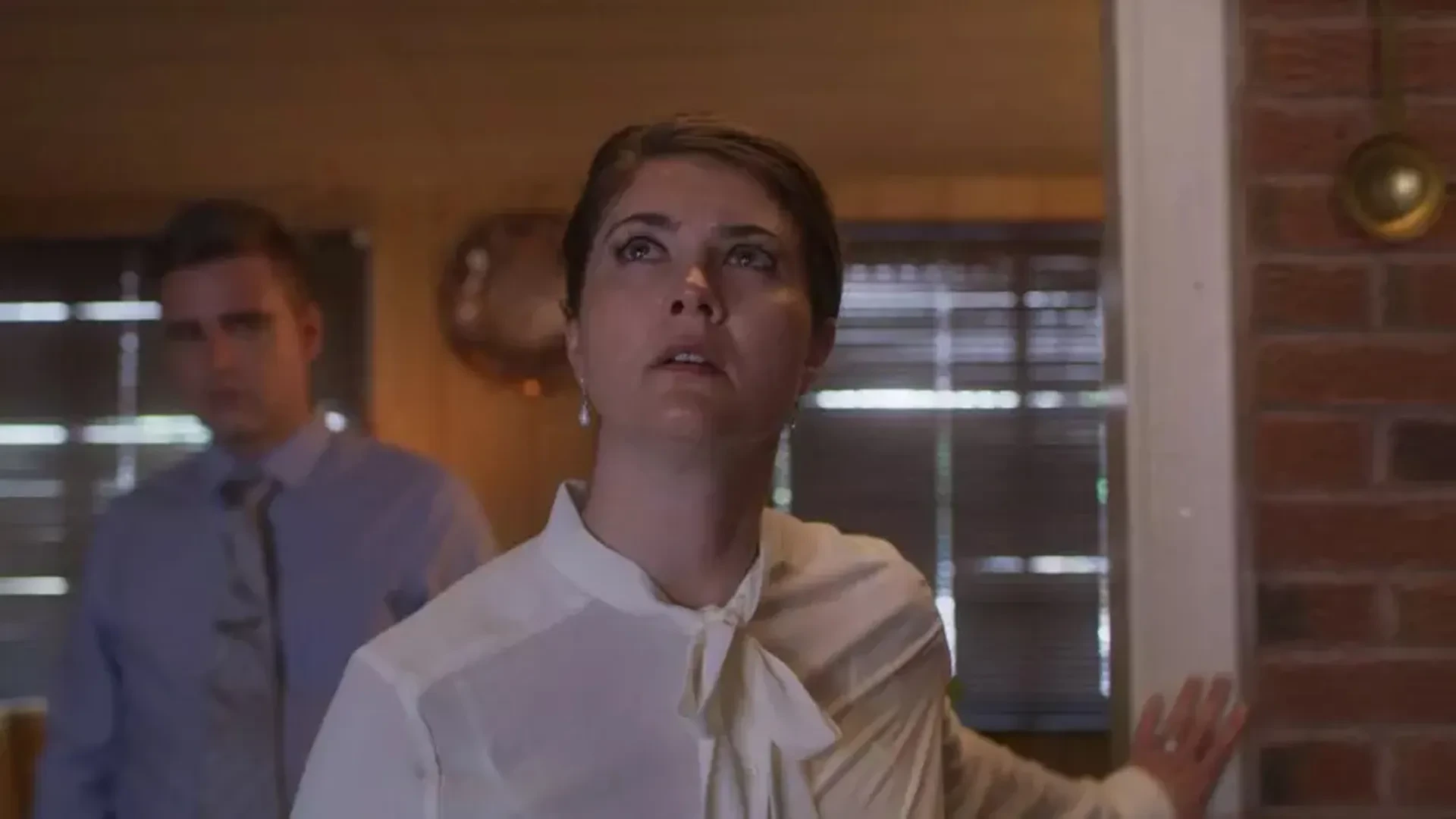
Ed and Lorraine Warren walked into our house the night before Halloween in 1973. My mother and father had no idea who they were when they came to the to the kitchen door, but my mother let them in, and Mrs. Warren came into the kitchen and she walked over to the old black stove, put her hand on the corner and then she just covered her eyes, and she said “I sense some malignant presence in this house. Her name is Bathsheba.”
I will forewarn people, if somebody ever claims to be an expert in this field, do run away from them as fast as you can. There is no such thing, and not only are they being disingenuous with you, they're lying to themselves if they think that they're an expert in this field. That just simply doesn't exist. We're all little children lost in the dark, finding our way home.
40 years after moving out of that house, I was with Lorraine Warren at a private screening of The Conjuring a few months before it was released. That day that she said to me that she was sorry, because she and Ed were in over their heads the moment they crossed the threshold of that house - they just didn't know it yet. But I will go to my own grave believing that they did everything in their power to help us, they just didn't know how. In fact, it was on Ed's deathbed that he begged his wife to tell our story in whatever way she could because he described their investigation of our farmhouse as the most intense, most compelling, most disturbing and most significant of all of the investigations that they ever conducted over more than 40 years as paranormal researchers.
So do you agree that Bathsheba was the malevolent spirit that Lorraine Warren believed her to be?
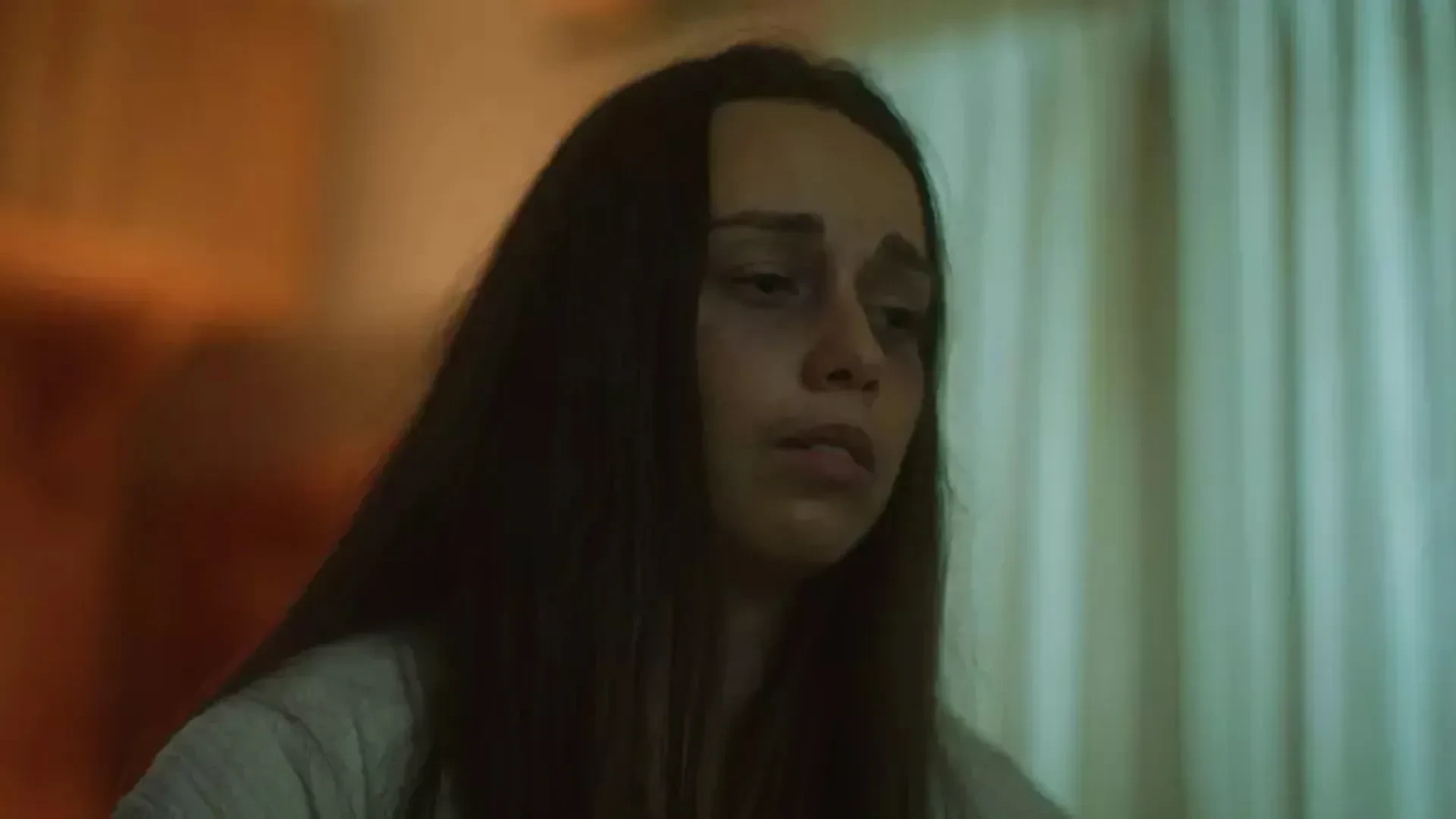
No, I think that’s very unfair on Bathsheba.
Bathsheba Sherman had a bad reputation for being very mean spirited, no pun intended, but she did not live there. She was born of the Thayer family, and married farmer Judson Charmin about a mile and a half away, but there were only a few homesteads so naturally all the neighbours knew each other. Apparently a baby died in her care, and there was an inquest regarding the death of the infant that said that a needle had been found impaled at the base of that skull, but that could have been a terrible accident. We don't really know, and I don't think that you should accuse someone of murder unless you've got some real evidence to back up that claim.
She lived with that terrible dark cloud over her for her whole life, and I cannot absolve her of guilt - I don't know what the circumstances were - but I can be her great defender and I have been.
Unfortunately, when Mrs. Warren decided that she felt a dark presence in the house and said it was Bathsheba, then everything that happened in the house got blamed on Bathsheba. And that's just not the case at all. I just don't believe that, and I've had spirit connection with Bathsheba, even at her own gravestone - I’ve heard disembodied voices, she's come through spirit box to talk to me - she's a part of my consciousness and a part of my life. And I defend her at every turn. Because, you know, unless somebody can prove to me that she was a practitioner of witchcraft, which I just don't believe because she wouldn't be buried in hallowed ground with the rest of her family if there was any evidence of that. And what she was accused of in life, had she lived 100 years earlier, could have gotten her killed up the road in Salem. That's a dangerous word to throw around. Even today, in some parts of the world, women are slaughtered because somebody said, they're a witch.
I’m not saying that she [Bathsheba] was the most the most pleasant woman in life, or the most pleasant spirit in the afterlife, but in some ways, she lived a tortured existence. She lost three of her four children before the age of four, had this prejudice against her for years, and I can't even imagine the hardships of living in New England back at that time.
So, I feel compelled to defend her honour. In the Warren’s case files that The Conjuring was based on, Mrs. Warren basically blamed everything on her, but the real story is richer and deeper and more convoluted. They can't squeeze 10 years into a two-hour film.
Apparently you even had a family pet named Bathsheba, is that true?
Yes, that was before we moved to the farm, and that name just kind of fell out of the sky - my mother named our little dog Bathsheba. We didn't know the biblical reference, we were just little kids so we abbreviated it to Sheba, but her given name was Bathsheba as a little puppy. And, you know, where did that come from?
What about other spirits in the farmhouse? Was it not frightening to live with them?
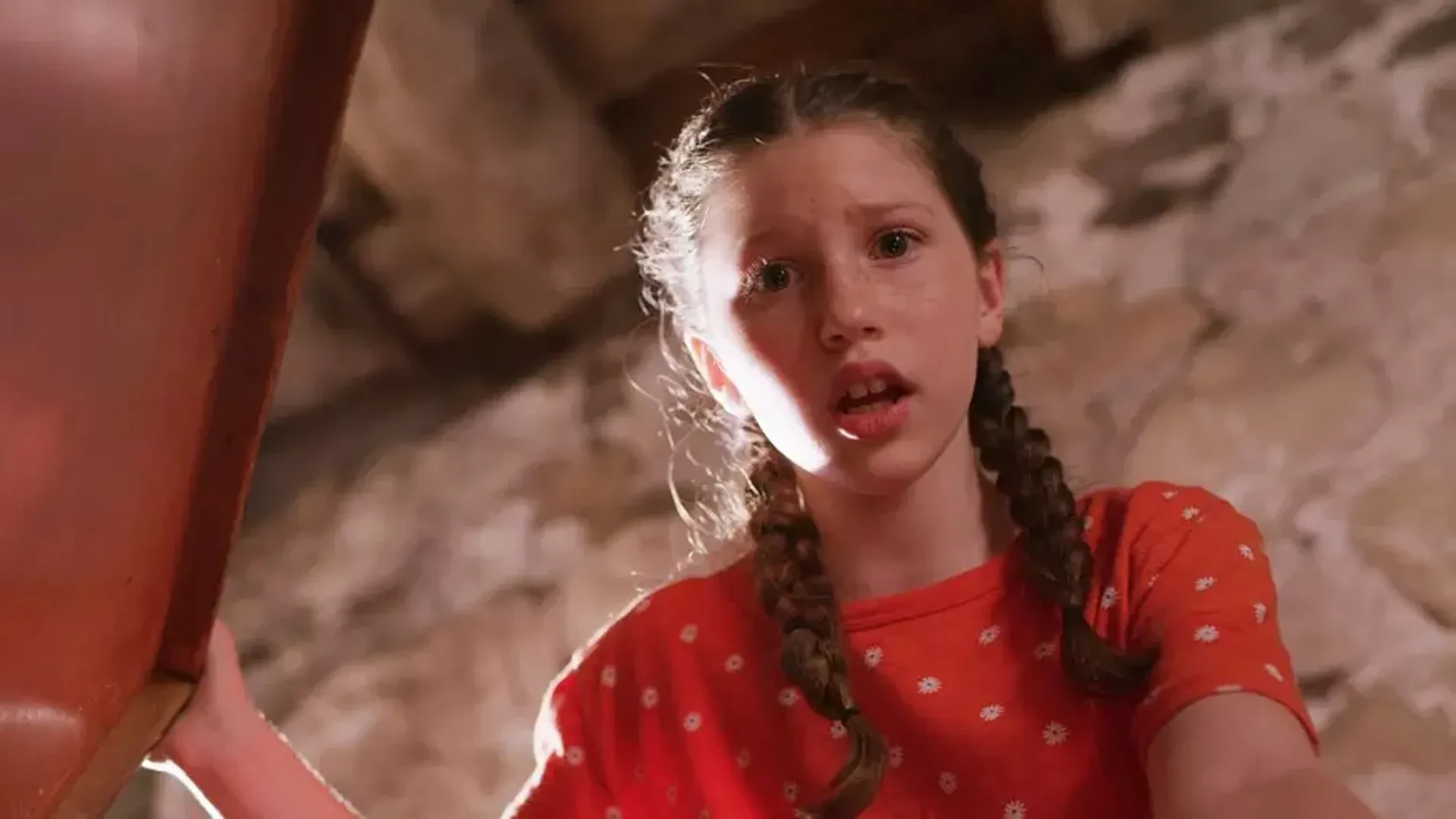
I'm not saying I was never frightened in the house. I was particularly frightened for my sister Cindy, and what she was enduring. And I was especially concerned about my mother, because clearly, there was a spirit in that house that I think was dead long before Bathsheba Sherman was even born. An ancient spirit that spoke with a deep Scottish brogue, and threatened her, and used language that was already out of favour in the 1800s. She approached her, I think, during our second year, I'd have to go back and check the time timeline on that, but she approached my mother and she said, “I t’was mistress once a’for you came, and mistress here will be anon.” Thats language that was not even used in the 1800s, it was already out of favour as the language evolved. And that was not Bathsheba.
[…] The only spirit that ever self-identified at the house is represented as the little boy Rory in the film. His name is actually Oliver Richardson. He was probably five or six when he died, my sister April's age when we moved in, so it's not unusual that he would reach out to her. But when he told when he told her what his name was, we didn't even know yet that that house wasn't built by the Arnold's – in fact it was actually built by the Richardson family. And so, there was the real connection, but it took another couple of years of research to find it.
What about the Scottish spirit, did you have any theories on who that could’ve been in life?
Well, when we moved in we met a very, very old man who was in his 90s, Mr. McEachern. He labelled himself the town historian - he just knew a lot about the original homesteaders in that area. He said that it based on his own knowledge and research he believed that a Mrs. Arnold had hanged herself in the barn at the age of 93 in 1797. Those were the dates that he gave us - we have yet to be able to verify that.
But she was the one who I think probably considered herself mistress of the house. She was threatened by my mother's presence there. She wanted mum out, she wanted dad and us to stay so she, whoever it was, the female spirit with a broken neck that approached my mother twice - she just wanted my mum out of the house. I think she just wanted to live her life over again, vicariously with my father and us, the five children, that she seems to covet. She approached Christine, she approached Cindy, I saw her. I don't think Nancy ever saw her and I don't think April ever saw her. We almost had different spirits that liked us best - I don't know, I can't explain it, it's bizarre. And yet last night, during a spirit session that we were having at the farm, I was there last night, at two in the morning - what came through was Abigail Arnold, who I believe died in 1865. She came through, identified herself, identified me as being present in the house, and then her direct message to me was: “we miss your family.”
So they’re still very much there, these spirits, and we don't know why. I mean, what is it that keeps some earthbound while others go off? I speculate about it and I wonder if it's because they claimed their own lives, and they're afraid to go to the life because it might be the hellfire and damnation they were raised with – so they fear burning for eternity for hell, and they fear to cross over. Or that they died so suddenly and tragically that they don't seem to understand that they're dead, they're confused. It's I think it's a lot of things. And the more we study, the more we research, the more we communicate with them, the more we learn - and that's the beauty of what we do.
So what did you make of the film adaptation, and how does it compare with The Real Conjuring: Our Story?
You know, when they see a film that says "based on a true story..." there's a lot of license that's taken and making a film like that. Everybody associated with The Conjuring read my books - right from the executive producers to James Wan, the director - they knew that they were representing a living family and they were extremely respectful.
However, the executives at Warner Brothers did not feel the true story could be told or extricated from my volume of work, because they thought that it would literally run people out of the theatre - I give people more credit for intelligence than that, but movie executives can be fair-based carbon units too - they're just as afraid of the same stuff that everybody else is. And so it shook them to their core, and they made the screenwriters redact every element of truth that came directly from my books and just take it out, go this way - there's gotta be protagonist and antagonist, there's got to be a mean spirit, there's got to be a little boy...I mean, they did the best they could based on their understanding of what the public could handle and receive, plus they wanted to get a PG rating of the film, obviously, because it feels a lot more theatre seats. And when the MPAA the rating system in the United States came back and gave it an R, I was with James Wan, and his head blew off his shoulders. He's like, “I want to know why - there's no gratuitous violence, there's no sex, there's no swearing - why is this not getting a PG, or at least a PG 13?” And they came back with a little piece of paper, and the answer from them was, it's just too scary. That's why it got the R.
Well, I don't think of our story as a horror story, I think of our story is a love story, with a wicked supernatural twist. It is multi-dimensional in nature in an otherwise 3D world that is much bigger than we understand. So I think it's an opportunity to not only touch human beings hearts, but to inform them. This is more about knowledge and less about fear - and good conquers evil and love conquers fear every time, or none of us would be here anymore. And in the grand scheme of things, they did get it right, that love conquers evil, love conquers fear. The Perron family endured an extreme haunting, but they all survived. That's what people come away with as overarching memories of the film. But the documentary is a masterwork in terms of delving deeply into the psyche, into the emotions of my family members 50 years on, and how it has had an impact in our lives.
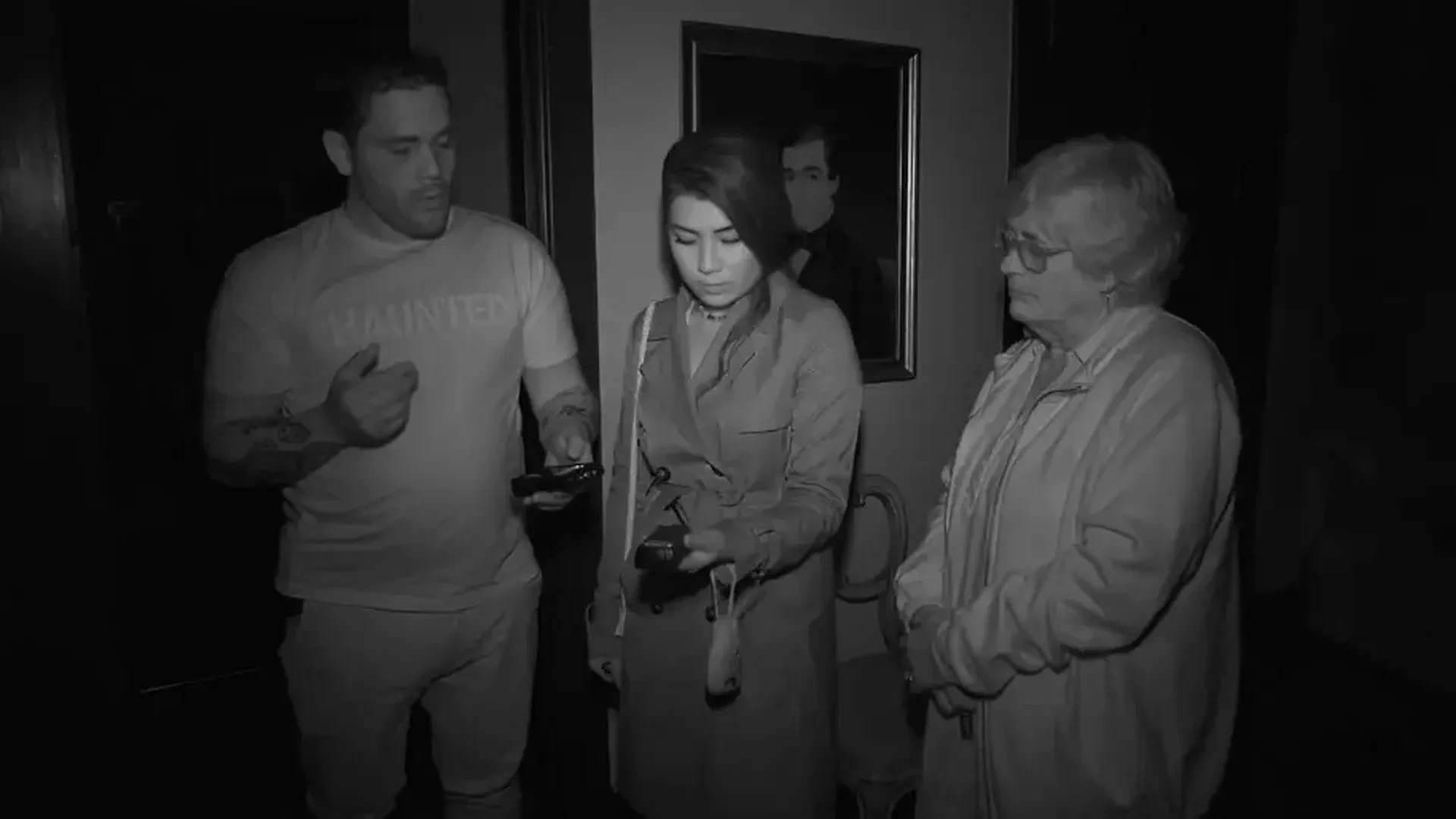
But the thing about the documentary that I found so compelling, and so beautifully done, wonderfully done, was the production team was deeply emotionally invested. And so that's why I wrote the books, that's why I made this documentary with such loving care with a team of professionals second to none - I'm very, very proud of the piece. They went above and beyond to, to tell the truth, and I think people deserve the truth. People can handle the truth about a lot of things. They just have to be given the opportunity. They knew my family well, really spent months getting to know my family, before the interviews were even conducted.
[…] I feel like the documentary captured the essence of my family's emotional attachment, our physical history at the farm. I mean, that house was completed as it stands now and 1736, 40 years before the signing of the Declaration of Independence - it is a true colonial home. And that's why my mother bought it - there were no ghosts or spirits on the radar.
I mean, there was some things that Cindy couldn't talk about while filming because she didn't want to cry and ruin her makeup. There were things that Christine kind of shied away from, subjects that she just that were so painful and personal she didn't want to talk about them - but for the most part they were very forthcoming, and me I'm an open book, literally and figuratively.
And that resonates in this piece in a way that nothing else has captured. And I've made dozens of films and documentaries and, you know, interviews, television shows, dozens. Nothing compares to this one and I hope that it is very well received in the UK.



